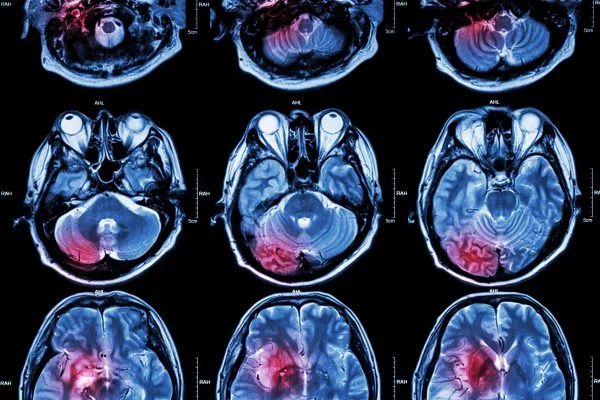
New Pretrial Diversion In California Mental Health Cases: Expectations vs. Reality
Jail diversion initiatives have gathered much interest as a strategy for reducing the presence of people with mental illness in the criminal justice system. Under penal code 1001.36, California now offers “Mental Health Diversion” programs that allow some criminal defendants to get mental health treatment when they are accused of a crime in the form of “pretrial diversion.” Pretrial diversion allows a willing defendant to postpone further action in their case in order to participate in a treatment program and can be requested at any point in a criminal case before the sentencing. Mental disorders are characterized by problems that people experience with their mind and mood. The Diagnostic and Statistical Manual of Mental Disorders (DSM-5) have listed mental disorder symptoms, some of which are Alcohol/Substance Abuse, Anxiety Disorders, Adult Attention Deficit/Hyperactivity Disorder, Depression, Eating Disorders, Generalized Anxiety Disorder, Obsessive-Compulsive Disorder, Opioid Use Disorder Symptoms and many others.
Who is Eligible?
Expectations:
To qualify, the defendant must suffer from a condition listed in the most recent edition of the DSM, or Diagnostic and Statistical Manual of Mental Disorders.
Reality:
Defendants suffering from anti-social personality disorder, borderline personality disorder, or pedophilia are not eligible for the program.
What are the Requirements?
Expectations:
PC 1001.36 allows for both misdemeanor and felony defendants to be considered for mental health diversion.
Reality:
All conditions have to be met for a defendant to be eligible for mental health diversion:
- The defendant suffers from a mental health condition other than anti-social personality disorder, borderline personality disorder, or pedophilia.
- The defendant’s mental disorder played a significant role in the commission of the charged offense.
- In the opinion of a qualified mental health expert, the defendant would respond to mental health treatment.
- The defendant consents to diversion and waives his or her right to a speedy trial.
- The defendant agrees to comply with treatment as a condition of diversion.
- The court is satisfied that the defendant will not pose an unreasonable risk of danger to public safety.
When Does It Occur?
Expectations:
It occurs right at the time of the plea bargaining phase.
Reality:
Diversion to treatment can occur at several points during the pretrial phase. Pretrial diversion means the postponement of prosecution, either temporarily or permanently, at any point in the judicial process from the point at which the accused is charged until adjudication, to allow the defendant to undergo mental health treatment.
Is it Automatic?
Expectations:
Pretrial diversion is automatically considered.
Reality:
The defense must present evidence of a recent diagnosis by a qualified mental health expert with relevant evidence including an examination, medical records, and arrest reports.
Are the Programs Free?
Expectations:
Pretrial diversion under PC 1001.36 provides free programs.
Reality:
Payment for mental health treatment can come from private or public funds. If the defendant cannot afford private treatment, the court may refer him or her to a county mental health agency or any existing collaborative court. The defendant will only be able to avail themselves of a program if the designed entity has agreed to accept responsibility for the defendant’s treatment and if there are available resources for which the defendant is eligible.
What Happens Next?
Expectations:
Following successful completion of mental health diversion, the charges are dismissed, leaving no criminal record for most purposes and the arrest record will then be sealed.
Reality:
Treatment progress is measured by the provider of the diversion program who provides regular progress reports to the court. If the entire diversion program is completed without additional arrests or other complications, pending criminal charges will be dismissed, and the arrest may be ordered sealed. If certain triggering events occur, the court will hold a hearing to determine whether the treatment should be modified, criminal proceeding against the defendant should be reinstated, or the defendant should be referred to a county investigator for possible conservatorship proceedings.
“If the defendant successfully completes the treatment program, the court will dismiss the charges.”
These triggering circumstances are if the defendant is charged with a new misdemeanor that reflects a propensity for violence, the defendant is charged with a new felony, the defendant engages in criminal conduct that makes them unsuitable for diversion, or if a qualified mental health expert advises the court that the defendant’s performance in treatment was not satisfactory or is gravely disabled. If the defendant successfully completes the treatment program, the court will dismiss the charges. If diversion was not successfully completed, the court will reinstate the criminal proceedings against the defendant.
Could You Benefit from Substance Abuse Treatment Instead of Jail Time?
If you or a loved one have been arrested for a crime that you think could result in jail time but could benefit from mental health treatment or other pretrial diversion program, you need attorneys who will give you the best representation possible. If you are in San Francisco, Alameda, Contra Costa or San Mateo County, contact Mirador Law for a free initial consultation to learn more about your options. (Here is a map to our Pleasanton office.)
Our Attorneys Will Fight for You!
Sources
- https://leginfo.legislature.ca.gov/faces/billTextClient.xhtml?bill_id=201720180AB1810
- https://leginfo.legislature.ca.gov/faces/codes_displaySection.xhtml?sectionNum=1001.36&lawCode=PEN
- https://psychcentral.com/disorders/
